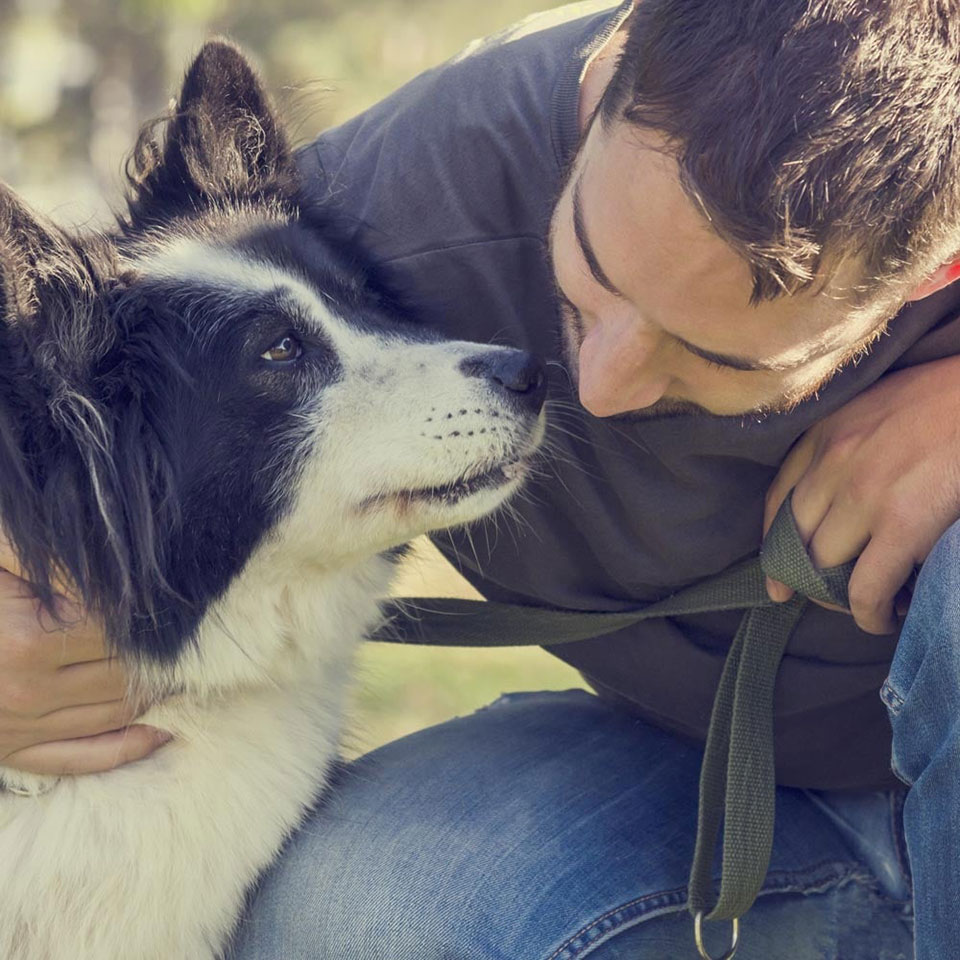Dogs, like humans, can sometimes experience stress that can negatively impact their health and behaviour. Because our four-legged friends don't have the ability to communicate their feelings in the same way that we do, it's up to us to recognise when they’re stressed, and take any appropriate action to help them!

Identifying Stress in Dogs
Stress can manifest differently in individual dogs, so it's important to be aware of your own dog's typical habits. When looking for signs of stress in a dog, you’ll want to observe their behaviour and body language closely.
Physical Signs of Stress
Dogs can display a range of physical signs when they're stressed. Some common physical signs of stress in dogs include:
- Panting or rapid breathing
- Sweating from the paws
- Shaking or trembling
- Dilated pupils
- Increased heart rate
- Licking or biting at themselves excessively
- Vomiting or diarrhoea
- Loss of appetite
Behavioural Signs of Stress
In addition to physical signs, dogs can also display a range of behavioural signs when they're stressed. These can include:
- Aggression or biting
- Excessive barking or howling
- Destructive behaviour, such as chewing or scratching
- Excessive drooling
- Hiding or trying to escape
- Loss of interest in activities they normally enjoy
- Restlessness or an inability to settle down
Common Stress Triggers for Dogs
In addition to physical and behavioural signs, it's also important to consider potential stress triggers. Stress triggers can vary from dog to dog, but some common ones include:
- Loud noises like thunderstorms or fireworks
- Separation anxiety
- Changes in routine or environment
- Lack of exercise or mental stimulation
- Travel or car rides
- New people or animals in the home
- Illness or injury
Stress Relief Techniques for Dogs
If your dog is displaying signs of stress, there are several stress relief techniques you can try:
Exercise and play
Regular exercise and play can help to reduce stress in dogs by releasing endorphins: these promote feelings of happiness and relaxation. Taking your dog for a daily walk, playing fetch with them, or allowing them to engage in another physical activity that they enjoy are all great options.
Calming music or white noise
Playing calming music or white noise can help to soothe and relax dogs, particularly if you do so during stressful situations. You can find a variety of online playlists and soundtracks that are designed specifically for dogs, or you could also try playing soft classical music or nature sounds.
Massage Therapy
Massage Therapy can help to reduce stress and promote relaxation in dogs. You can try gently massaging your dog's muscles or using TTouch techniques. These involve using circular motions and light touches upon specific areas of a dog’s body.
Aromatherapy & essential oils
Aromatherapy and essential oils can be effective for reducing stress in dogs. Some essential oils (such as lavender and chamomile) have calming properties that can help to soothe anxious dogs. However, it's important to use caution when you’re using essential oils around dogs, as some oils can be toxic if they’re ingested or inhaled in large amounts.
Dietary changes
Diet can also play a role in your dog's stress levels. Feeding your dog a balanced and nutritious diet can help to reduce stress and promote overall health and wellbeing. Some foods (e.g. those that are high in omega-3 fatty acids) can also have a calming effect on dogs.
It may take some trial and error to find the right stress relief techniques for your dog. However, by combining approaches and paying attention to your dog's individual needs, you can soon help them to feel more relaxed, happy, and healthy.

Training & Behaviour Modification
In addition to the stress relief techniques we've discussed, training and behaviour modification can also be effective for reducing stress in dogs:
Positive reinforcement training
Positive reinforcement training involves rewarding your dog for good behaviour, rather than punishing them for bad behaviour. This type of training can help to build your dog's confidence and reduce their stress levels by teaching them what’s expected of them in a positive and supportive way.
Desensitisation & counter conditioning
Desensitisation and counter conditioning can be effective for dogs that are stressed by specific triggers: such as loud noises or other dogs. These techniques involve gradually exposing your dog to the trigger in a controlled and positive way, while rewarding them for calm behaviour. Over time, your dog can learn to associate the trigger with positive feelings, rather than stress and anxiety.
Professional help
It’s worth saying that stress is a common issue for dogs, but every dog is different: what works for one dog may not work for another! If your dog's stress levels are severe or if you're finding it hard to manage their behaviour, we’d always advise seeking professional help from a veterinarian or a certified dog behaviourist. They can identify the root cause of your dog's stress and develop a personalised training and behaviour modification plan to help them feel more relaxed and comfortable.
If you’d like to learn more, our Canine Behaviour Training Course is currently available for just £29 for a limited time (reduced from £127). With the right support and guidance, you can help your furry friend to live their best life!




